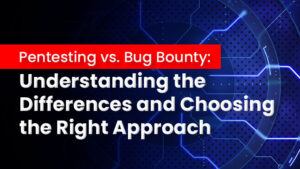Introduction
The security of our digital assets has never been more critical than it is now when the digital world has permeated our personal and professional lives. Because of the constant evolution of cyber threats, businesses of all sizes need more robust and adaptable security solutions. Fortinet FortiGate Firewalls is a brand that continually distinguishes out in network security. These cutting-edge security devices are recognized for their many functionalities and function in protecting networks from cyber-attacks. In this blog, we will explore the world of Fortinet FortiGate Firewalls to learn all you need to know about these cutting-edge security solutions, from their features and advantages to their use in today’s digital world.
Get Our Fortinet Network Security Professional NSE 4 – FortiGate Security Course Today!
What is meant by Fortinet?
Fortinet’s well-known cybersecurity business focuses on creating and offering various network protection and cybersecurity solutions. The business provides a wide range of goods and services to shield people and businesses against online dangers, including malware, viruses, data leaks, and other assaults.
Fortinet’s solutions’ hardware and software components include its flagship FortiGate Firewalls, well-known for their robust threat detection and prevention skills. Fortinet’s wide range of products, including security appliances, endpoint protection, cloud security, and secure networking solutions, includes firewalls as just one example. Businesses, governmental agencies, service providers, and other organizations that want to safeguard their networks and data in a connected and digital world frequently utilize Fortinet’s solutions.
Concept of Firewalls
To monitor and manage incoming and outgoing network traffic following the security regulations previously defined by an organization, firewalls are network security hardware or software solutions. They serve primarily as a firewall between trustworthy internal networks, like an organization’s intranet, and shady external networks, like the Internet. Computer systems, networks, and data must be protected against unauthorized access, cyberattacks, and other security risks via firewalls.
Firewalls inspect data packets as they pass between computers and networks. They use established rules or regulations to decide whether to let or prohibit traffic. The source or destination IP address, the port numbers, and the kind of network protocol used can all be used as bases for these rules. A network can use firewalls in various places, including on individual devices (host-based firewall), between network segments, and at the perimeter (external firewall). Firewalls are crucial to network security to prevent unauthorized access, identify and stop malicious activity, and build a security barrier to protect sensitive data and digital assets.
FortiGate Firewalls
Fortinet created a line of cutting-edge network security appliances and software solutions known as FortiGate Firewalls to protect networks and data from various cybersecurity threats. These firewalls are renowned for having solid intrusion defense, threat detection, and prevention. Capabilities: They function by reviewing and regulating network traffic—both inbound and outbound—following predetermined security principles. FortiGate Firewalls allow or block data packets based on various factors, such as source and destination IP addresses, port numbers, and application protocols.
Because of its adaptability, FortiGate Firewalls are appropriate for companies, governmental agencies, and service providers. They go beyond the capabilities of conventional firewalls by providing features like deep packet inspection, application layer filtering, intrusion prevention, and identity-based restrictions. This enables organizations to regulate access, tighten security, and have fine-grained control over network traffic. FortiGate Firewalls may also operate along with other Fortinet security products and third-party applications, offering a comprehensive and well-rounded approach to network protection. They are well-known for their flexibility, scalability, and real-time threat intelligence, which enables organizations to keep ahead of new cybersecurity threats. In conclusion, FortiGate Firewalls are a valuable tool in defending digital assets and sensitive information from online attacks due to their extensive network security capabilities.
Key Features of FortiGate Firewalls:
- Comprehensive Security Protection: FortiGate firewalls offer comprehensive security protection, including firewall, intrusion prevention, web filtering, application control, SSL inspection, and more.
- High Performance and Low Latency: FortiGate firewalls are powered by Fortinet’s unique SPU, which enables them to give great performance and low latency even while operating many security services concurrently.
- Scalability: FortiGate firewalls are extremely scalable and can be installed in a wide range of scenarios, including on-premises, cloud, and hybrid networks.
- Centralized Management: Fortinet’s FortiManager and FortiAnalyzer equipment can be used to manage FortiGate firewalls centrally.
Benefits of FortiGate Firewall
- Improved Security Postures: FortiGate firewalls provide complete security protection against a variety of threats, including malware, intrusions, and web-based attacks. This can assist organizations in strengthening their entire security posture and lowering the risk of data breaches.
- Cost savings: By unifying various security solutions into a single platform, FortiGate firewalls can assist organizations in lowering their security expenditures. This can also help to simplify security administration and cut operational costs.
- Improved Network Performance: FortiGate firewalls are built to provide great performance and low latency even when operating numerous security services at the same time. This can assist businesses in improving the performance of their networks and apps.
Use Cases of FortiGate Firewall:
- Network Security: FortiGate firewalls are primarily used for securing network infrastructure by enforcing security policies, filtering traffic, and protecting against unauthorized access, threats, and attacks.
- Perimeter Defense: FortiGate serves as a robust first line of defense at the network perimeter, safeguarding internal networks from external threats, including hackers, malware, and denial-of-service attacks.
- Intrusion Detection and Prevention: The firewall features intrusion detection and prevention systems (IDPS) to monitor network traffic, identify malicious activity, and take action to prevent security breaches.
- Virtual Private Network (VPN): FortiGate supports VPN functionality, allowing secure remote access for employees and partners and facilitating secure communication between remote sites or branch offices.
- Web Content Filtering: FortiGate can filter web content and block access to specific websites or categories, helping organizations enforce acceptable use policies and maintain a secure browsing environment.
- Application Control: It can identify and control applications running on the network, allowing organizations to manage and prioritize application traffic for better network performance.
- Antivirus and Antimalware Protection: FortiGate includes antivirus and antimalware scanning capabilities to detect and block malicious files and content.
- Data Loss Prevention (DLP): FortiGate helps organizations monitor and prevent data leakage by inspecting outgoing data and enforcing security policies to protect sensitive information.
- Firewall Rule Management: Administrators can define and manage complex firewall rules and policies to control network traffic and ensure compliance with security requirements.
- Security Information and Event Management (SIEM): FortiGate integrates with SIEM solutions, providing real-time monitoring and reporting of security events, aiding in threat detection, and facilitating incident response.
Need of FortiGate Firewalls in 2024:
The following are some potential directions for the future of FortiGate firewalls:
- Machine Learning and AI: Integration of machine learning and artificial intelligence (AI) into FortiGate is expected to enhance its ability to identify and respond to evolving threats in real time, reducing false positives and improving overall security.
- Zero Trust Security: FortiGate may play an increasingly significant role in implementing Zero Trust Network Access (ZTNA) architectures, where trust is not assumed and strict identity verification is required for all network access.
- Security Automation and Orchestration: Automation and orchestration features are likely to be further developed to streamline security management and response processes, improving efficiency and reducing the burden on security teams.
- Extended Cloud and Multi-Cloud Security: As organizations continue to adopt cloud and multi-cloud environments, FortiGate is expected to provide robust security solutions to protect data and workloads across different cloud platforms.
- IoT and OT Security: With the proliferation of Internet of Things (IoT) devices and Operational Technology (OT), FortiGate may enhance its capabilities to secure and segment these devices, ensuring the integrity and security of critical infrastructure.
- 5G Security: The rollout of 5G networks may introduce new security challenges. FortiGate firewalls are likely to adapt to protect networks and endpoints in 5G environments.
Conclusion:
Fortinet FortiGate firewalls are powerful and versatile NGFWs that can provide comprehensive security for networks of all sizes. FortiGate firewalls are scalable, dependable, and simple to maintain, making them an excellent solution for businesses of all sizes.







